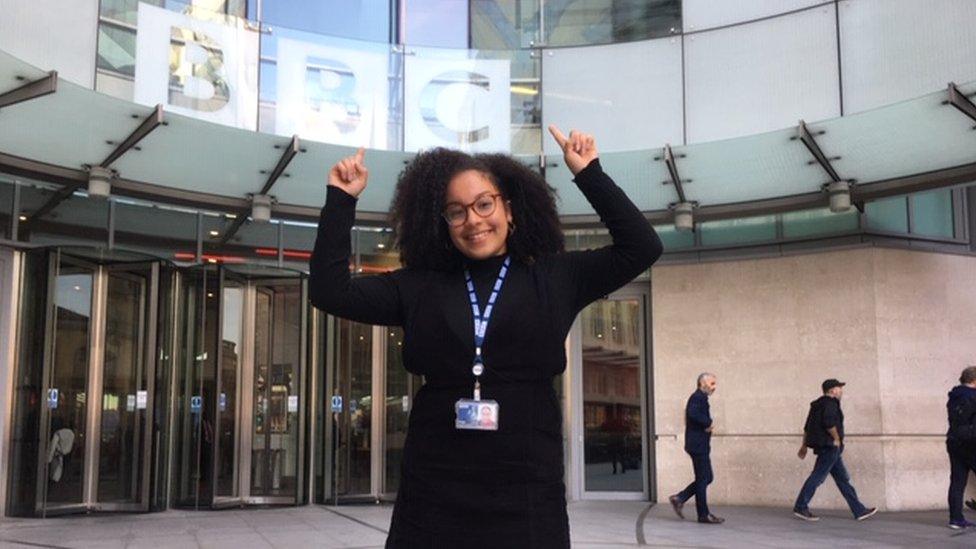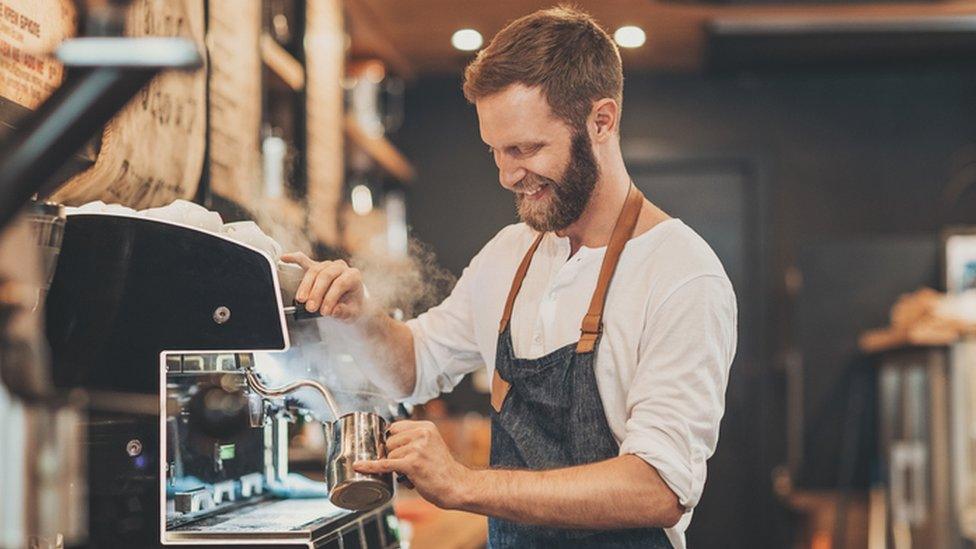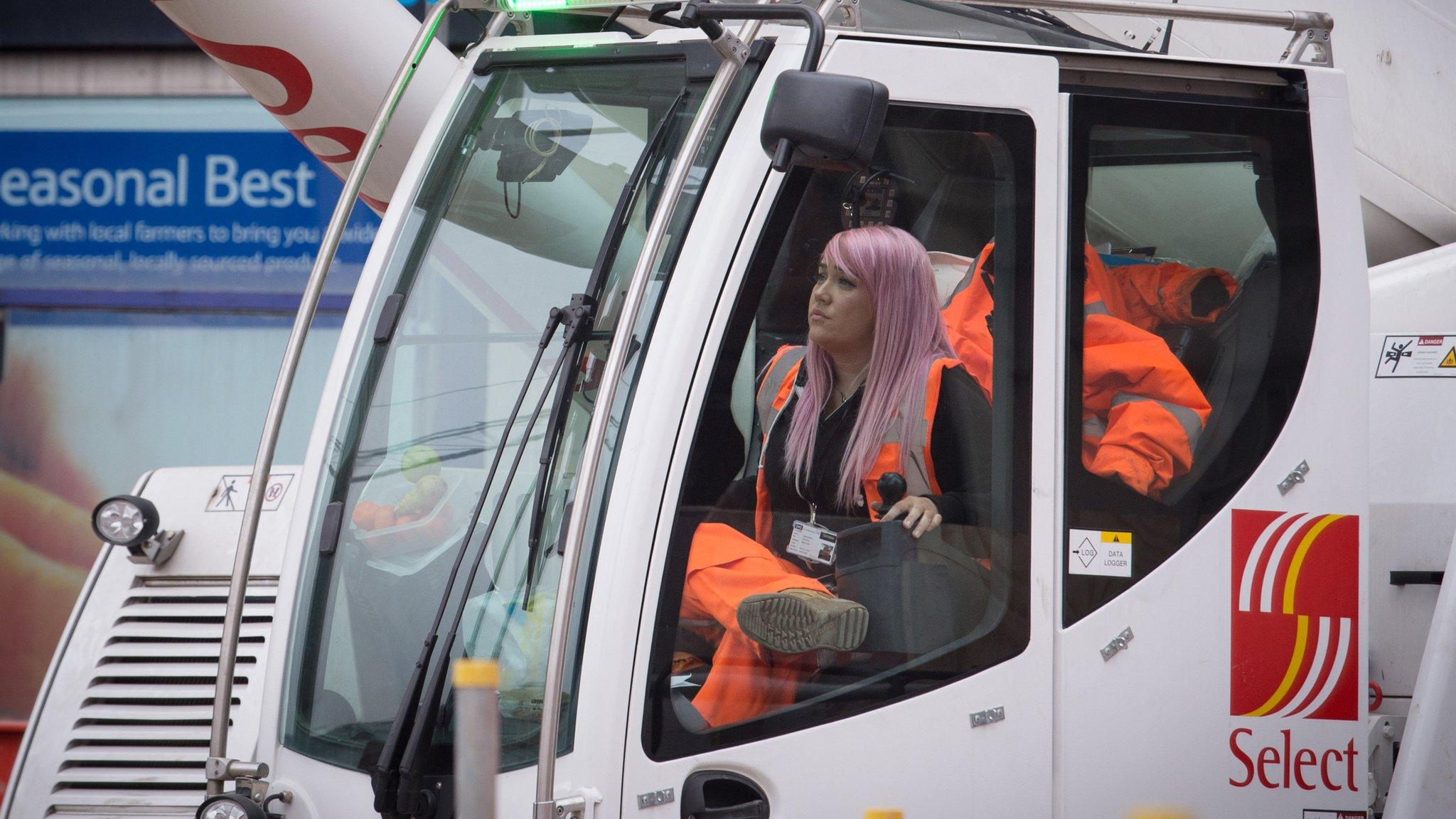Craft workers 'need their own titles'
- Published
- comments

Titles should be given to people with advanced craft skills, a think tank says, in the same way that an academic with a PhD is called "Doctor".
The Social Market Foundation wants people who complete high-level apprenticeships to be called "master craftsman" or "master craftswoman".
The intention is to give better public recognition to vocational skills.
Report author Nicole Gicheva says it would redress the "cultural bias" against technical qualifications.
The use of titles could be a way of showing the different standards of craft skills, says the report, sponsored by the Gatsby Charitable Foundation, which promotes technical training and careers guidance.
The levels of apprenticeships are "poorly understood" by the public, the think tank says - and introducing titles could be a way of showing people's achievements.
Sign of respect
Those who have vocational qualifications equivalent to a university degree could be known as "craftsman" or "craftswoman", the think tank says.
But those who have advanced further could be known as "master craftsman" or "master craftswoman".
The report points to the example of Germany, where a "meister" will have achieved high professional qualifications.

Hairdressing is one of the most popular apprenticeships
There is also a historical precedent, of medieval guilds, in which tradesmen could become "master craftsmen".
The report highlights the wide range of skill levels spanned by the term "apprentice" - and the difference in likely benefit in earnings.
The analysis says that many on the lower levels will have no real extra benefit in earnings - while those on higher levels of training will see a significant boost to their wages.
But it warns that the most common apprenticeships are those likely to "deliver the lowest returns", including those working in care, hairdressing and customer service.
Falling numbers
The report says that potential candidates for such training should have a clearer idea of how the system works.
"The best apprenticeships are highly challenging and prestigious qualifications which deliver significant returns to their holders, while some other apprenticeships do not. We need a better system to explain those differences," said Ms Gicheva.
Sir Gerry Berragan, chief executive of the Institute for Apprenticeships, said that improving the "public perception" of apprenticeships was "extremely important" and that they should have a "prestigious status at all levels".
But Sir Gerry said "careful thought" would needed over any titles used in job areas which were not traditionally seen as crafts.
"The term 'master craftsman' would not necessarily cover the wide range of modern apprenticeships now available - which for example cover professions such as legal, finance and accounting and the health sector," he said.
The National Audit Office earlier this month, in a report on apprenticeships, external, said there had been a shift to emphasise "quality and meeting employers' needs".
But the report warned "there are risks that the programme is subsidising training that would have happened without government funding".
The spending watchdog said £1.6bn had been spent on the apprenticeship programme in 2017-18 - but the number of apprenticeship starts was 26% lower than 2015-16 and the target of three million apprenticeship starts by 2020 was "very unlikely" to be met.
- Published8 October 2018

- Published13 April 2018

- Published21 February 2018
